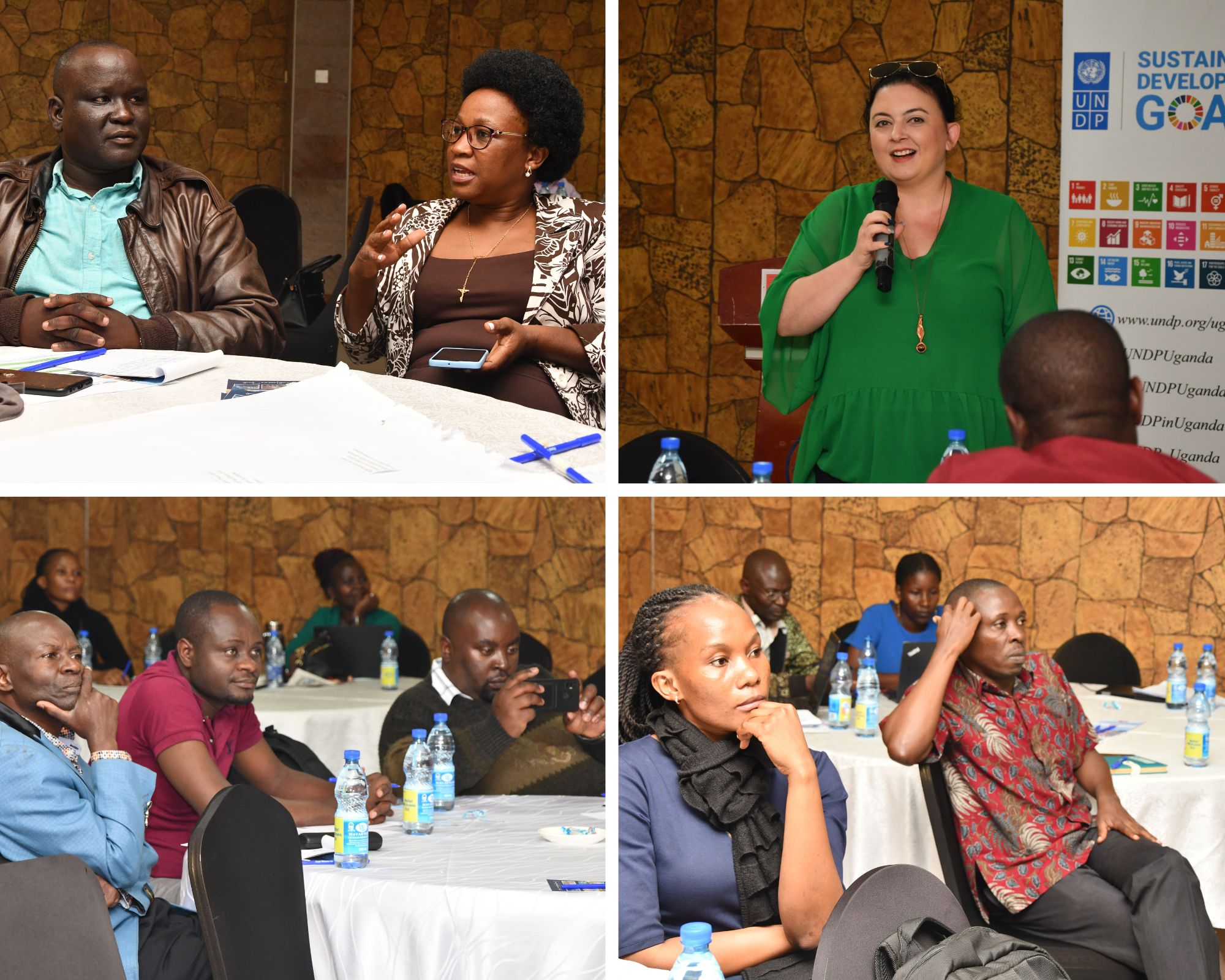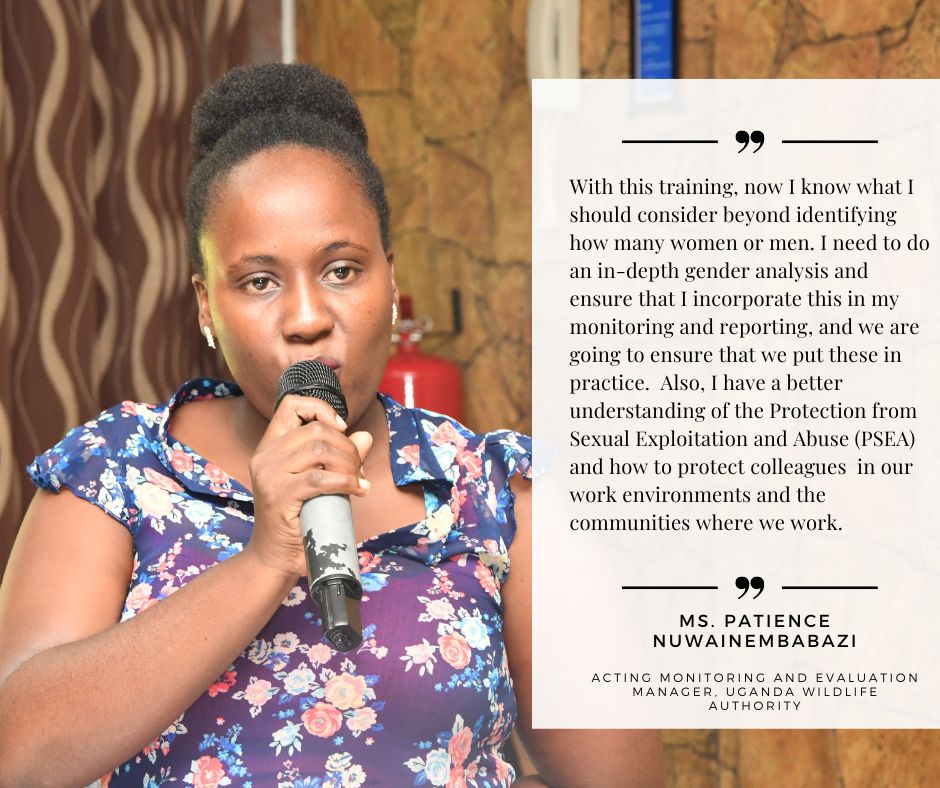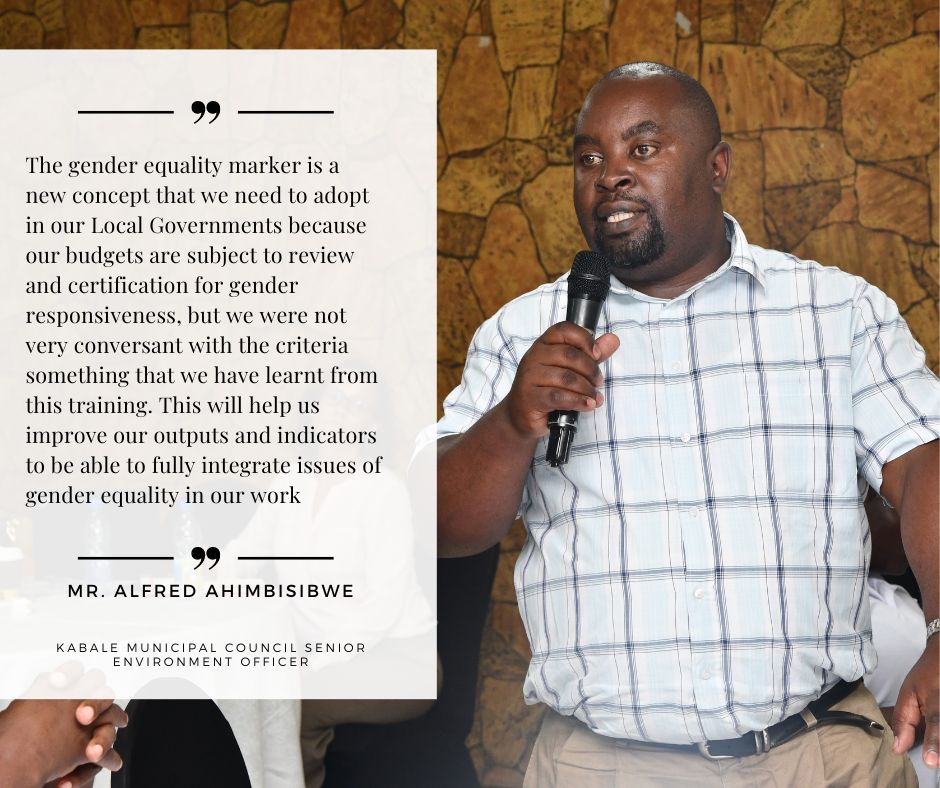UNDP trains staff and partners to mainstream gender in programmes
April 14, 2023

Participants during the gender training workshop.
Empowering women and making gender equality a reality is an integral part of the United Nations Development Programme (UNDP) mandate. To this end, UNDP supports national and stakeholder efforts to address gender inequality and overcome barriers to women’s economic empowerment. Central to this is ensuring that gender equality is integrated in all programmes and development solutions.
Under the auspices of the Swedish International Development Agency (SIDA)-UNDP Capacity Building Project, UNDP held a training workshop on gender concepts and gender equality marker rating for integrated programming in the Nature, Climate, Energy and Resilience (NCER) portfolio. The training sought to enhance capacity of UNDP and partner organisations, to promote an integrated, coherent and gender-responsive approach in design, implementation, evaluation and reporting on programme interventions.
This approach enhances improved and efficient delivery of projects, facilitates budget allocation, tracks and monitors the extent and adequacy of resources for gender equality, throughout the United Nations Sustainable Development Cooperation Framework (UNSDCF).
The United Nations System has a zero-tolerance policy for sexual exploitation and abuse (SEA). The training also integrated sessions on gender-based violence, sexual harassment, sexual exploitation and abuse, targeting UNDP staff, implementing partners, contractors and service providers. Participants from government agencies, private sector, and non-governmental organisations attended the two-day training.
A call to end the ‘silo’ approaches of programming
Speaking during the training, Ms. Sheila Ngatia, the UNDP Deputy Resident Representative, urged participants to break the ‘silo’ approaches of programming, utilize the knowledge and skills acquired, and be champions of gender equality and women’s empowerment in their respective organisations.
She also appreciated the support from the Swedish International Development Agency (SIDA), through the SIDA-UNDP Programme on Environment and Climate Change – Uganda for funding the training.
Ms. Ngatia encouraged participants to focus on offering solutions and interventions that are impactful for sustainable development and ensuring that no one is left behind, noting, “Globally, and nationally, we are facing key development challenges of poverty, environmental degradation, energy and climate crises and pandemics, among others, which are multi-faceted, complex, and requiring more than a single solution.”
Participants discuss during the training workshop
The discussions at the training dwelt on the challenge of existing gaps in mainstreaming gender and use of integrated approaches in programming, particularly in non-traditional programmes of nature, climate and energy which tend to focus on environmental/climate/energy objectives, with no deliberate aim of addressing underlying causes of gender inequalities therein.
One of the facilitators, Ms. Hawa Kagoya from the Centre for Domestic Violence Prevention (CEDOVIP), emphasized the importance of using gender lens in nature-climate-energy programming. “Our experience shows that, implementing gender-blind resilience projects can reinforce existing gender inequalities and unequal power relations, which perpetuate male privilege and potentially increase women and girls’ risk of gender-based violence,” she said.
Ms. Kathryn Wilkes, Gender Advisor and PSEA Coordinator at the United Nations Resident Coordinator’s Office, noted that gender equality is the bedrock of the Sustainable Development Goals (SDGs), adding that SDGs cannot be effectively advanced if gender inequalities are not addressed. She decried the lack of strong gender analysis and understanding on non-traditional areas of environment and climate change and how they impact on women and men, girls and boys and the different capacities to address it.
The United Nations’ Gender Advisor and PSEA Coordinator Ms. Kathryn Wilkes
On his part, UNDP’s Senior Economist Dr. Thangavel Palanivel stressed that the need to promote integrated development called for thorough analysis and data to inform integrated and gender-responsive approaches; understanding that development solutions can address multiple development challenges in more than one thematic area.”
Beneficiary voices
Accounts by participants indicate that the training changed perspectives of many who left more empowered and determined to be champions for gender equality and women’s empowerment in their spheres of influence.
We are going to practice what we have learnt


We need the gender equality marker in the local governments - participant

 Locations
Locations